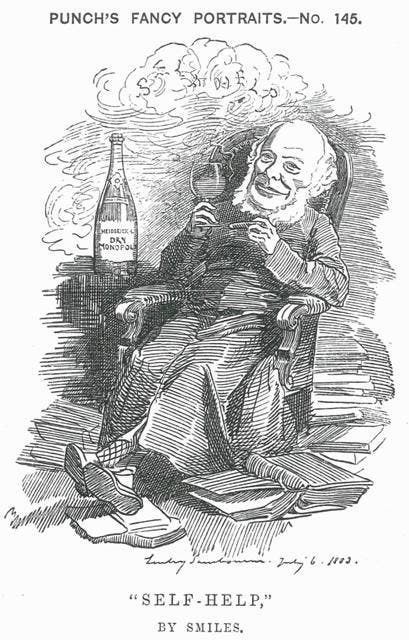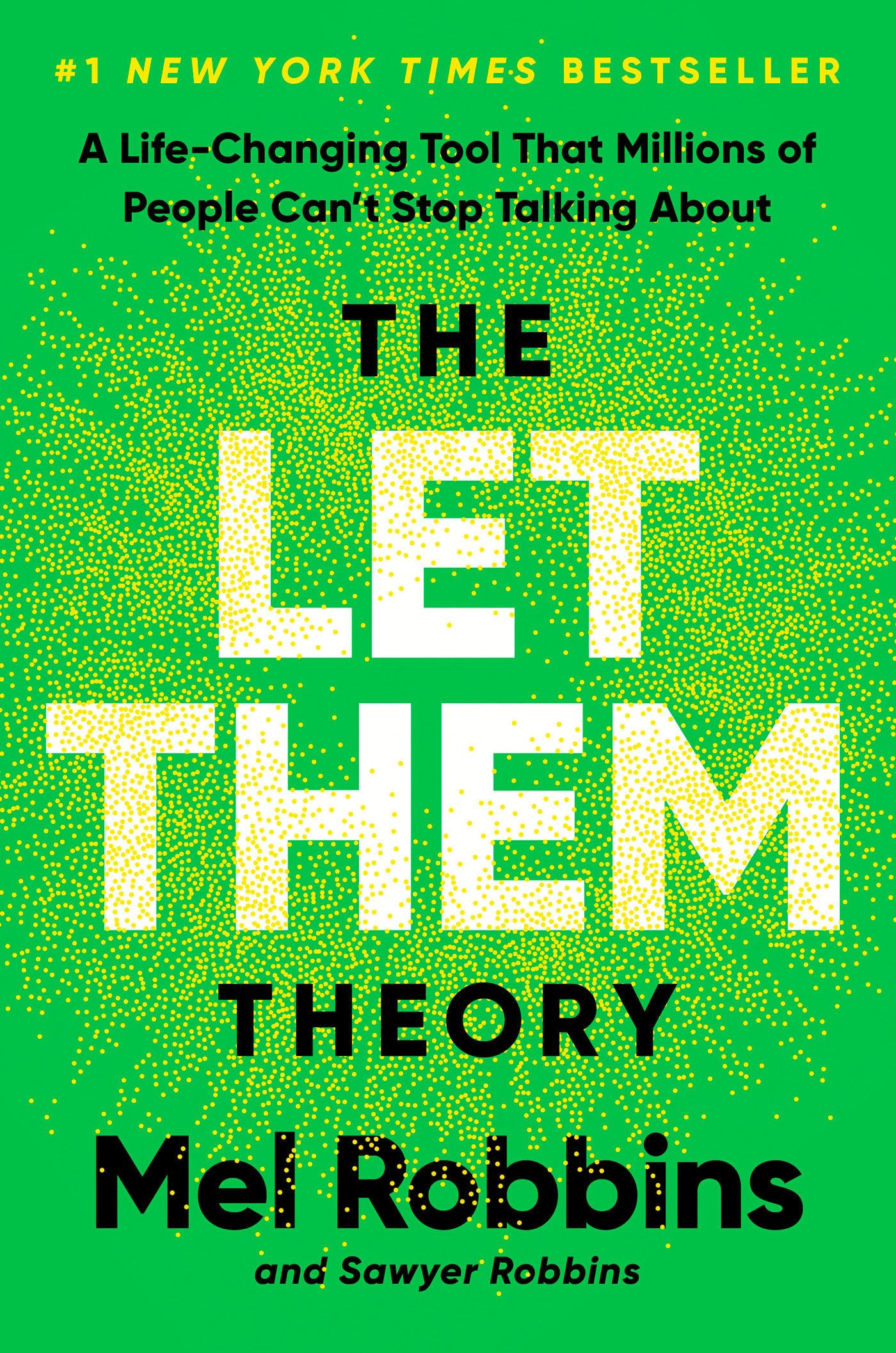Let Them Read Self-Help
Sign up for session 8 of the Peak Notions Book Club. We’re reading The Let Them Theory by Mel Robbins and asking whether viral advice borrows from deeper truths or flattens them beyond recognition
The book club is a paid subscriber perk, and this is going to be an especially interesting one! I’m offering 20% off paid subscriptions just for twenty-four hours. A paid subscription gets you access to audio content and bonus writing, the Peak Notions archive containing hundreds of written and audio articles, the weekly app chat and the Book Club sign-up sheet (session eight is linked below and there are fifteen spots up for grabs!). Thank you for supporting what I do and making Peak Notions a reality.
Fighting my snob demons and trying not to be distracted by the sound of Marcus Aurelius turning in his grave…
“…men must necessarily be the active agents of their own well-being and well-doing; and that, however much the wise and the good may owe to others, they themselves must in the very nature of things be their own best helpers.”
-Samuel Smiles, Self Help, 1859
At the root of every self-help book is a philosophical idea simplified to make it more accessible. While we might think of ‘Self Help’ as a product of the postwar era, the genre as we know it originated in 1859. Samuel Smiles’ book Self-Help targeted readers with a revolutionary message – that intellectual and moral character are not inherent or socially ordained clusters of traits, but psychologically achievable states. We can pursue and build them, Smiles argued, throughout the course of a well-intended, consciously directed life. Like every therapist you’ve ever met, he believed that we have the capacity to change for the better through the choices we make.
While this is a common perspective now, it was relatively subversive at a time when identity and social hierarchy were far more rigid concepts. Smiles encouraged ordinary men (it was Victorian England so we’ll forgive his androcentrism) to seek out social and economic betterment. He asked individuals to consider a radical idea — that they had the capacity to exert control in their lives, even in limiting circumstances. If you read Self-Help now, you’ll find within it all the hallmarks of our era’s pop psychology books which are essentially selling the same message. The arguments generally have more scientific basis than their Victorian predecessor but their USP is the same — they are books which entice readers by promising a route to a better, more successful, happier version of themselves.
For this next session of the Peak Notions Book Club, I want to embark on something a little different: a conversation about philosophy’s louder and less sophisticated cousin, self-help. I work hard to resist the self help snobbery which is so vocal in our culture but belied by how well these books sell. After all, many of the ideas self help books contain are distillations of the ideas of thinkers like Marcus Aurelius, which I consider incredibly valuable. They are practical tools for problem-solving in a chaotic world where many people need help but many can’t necessarily afford to access it.
The genre is often seen as gauche by the people who can access more tailored supports or who put on a turtleneck, use novels as self help and pretend that’s not what they’re doing. That perspective is not new either, as you can see from the above cartoon in Victorian satirical magazine, Punch. Many consider self help books to be something for the easily duped, overwhelmed soccer moms who like astrology, Instagram girlies sucking on Erewhon smoothies and people who just can’t get their goddamn shit together. That idea really is snobbery — a presumption that accessible routes to self-improvement are unintellectual and therefore deserving of disdain.
And yet. Yet. There is undeniably a fetid underbelly to the self-help industry, wherein bloviating, slightly-too-loud-for-some-reason content creators and writers roll into town with their brightly coloured cart and sell snake oil cures to precisely the people who are at a low enough ebb to buy. ‘ARE YOU SAD AND POOR AND UNSUCCESSFULl!?’ the schtick goes. “THEN TRY MY EASY FIXALL TONIC!’ Because the lure of a quick, simple, clear solution is timeless and holy shit, couldn’t we all use one of those? Sometimes the ideas within self help books are so far adrift from their philosophical and psychological origins that they become bastardised, butchered or bent, and sometimes they’re simplified and repackaged in a way that, while stripping them of nuance, can still turn them into useful tools.
If you happened upon a copy of Smiles’ Self Help in 1859, you might think he was empowering struggling people to exert control where they could under a difficult and often intractable system, and to live and feel better as a result. Or you might think that he was a shyster profiting from selling an emancipatory fiction to oppressed people who would never be able to achieve freedom and self-actualisation for reasons that were ultimately beyond their control. Both arguments are compelling. In our time, Self Help is not a single book but an industry in which readers part with their money in a spirit of supplication and writers and content creators claim to have answers — or the answer, as the dodgiest contenders tend to claim.
We’re not reading the enormously viral self-help book du jour The Let Them Theory because it’s deep. I’ve read it and it makes a strenuous effort to avoid spooking anyone by assuring you that it’s not. What it promises is simplicity and ease. For context, it sold 2.7 million copies within ten weeks of publication. We’re reading it because so many people think it’s deep, and that tells us something about our culture, and about ourselves. I’m not suggesting that Robbins has written a work of philosophy and neither is she.
However, I am asking why The Let Them Theory resonates so deeply with so many people, to whom it attributes its ideas, and whether it cheapens, preserves or enhances those ideas. Besides, there have to be some instances in life when having a doctorate in the philosophy of psychology is both useful and directly relevant. They’re as seldom as you might imagine, so I’m glad to have a good excuse to bring all those years of research into this conversation with you.
We’re going to read The Let Them Theory through a philosophical lens, considering the ideas and assumptions beneath Robbins’ ideas. We’ll talk about what it means to reduce a deep insight to an Instagram slogan, how far philosophical ideas can wander from their origins before they transform into merch, and what might be lost in the process. We’ll also discuss how valuable ideas that could change our lives really are if they’re arguably too complex, esoteric or inaccessible for most of us to engage with (I’m looking at you, Spinoza, you brown-eyed dreamboat, you). We’ll consider whether the self help genre has value beyond the oversimplification it can be prone to, and talk about what its popularity tells us about being alive on this stupid incredible miraculous terrible planet right now.
I’m curious to see what happens if we approach this book with the same open-mindedness and intellectual curiosity we’ve brought to George Orwell, the philosophy of Mary Midgley, or Viktor Frankl’s profound account of meaning. My own rejection of the high/low culture divide will be put to the test as we turn our attention to one of the most widely read and least critically examined genres of our time.
So, let’s see what happens when Peak Notions meets pop philosophy…
You don’t need any background in philosophy to come along to this session or to find value in the book. If you do have a philosophy background, the discussion should still be interesting for you!
The book club is my way of thanking paid subscribers who keep Peak Notions afloat, and of building community here. It takes research, work, and admin (which is not my forte oh my goodness!) so for that reason it’s open to paid subscribers only. There are 15 spots available for the eighth Peak Notions Book Club session, which takes place on Zoom at 8pm UK/Irish time on Thursday June 5th. You can get all the details (including the confusing time zone stuff!) and put your name on the list via the sign-up sheet linked below:
Keep reading with a 7-day free trial
Subscribe to Peak Notions with Laura Kennedy to keep reading this post and get 7 days of free access to the full post archives.





